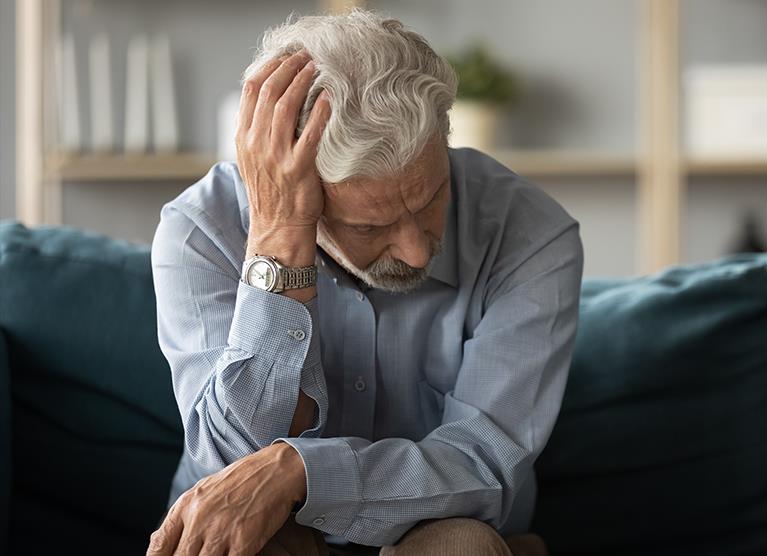I Have Muffled Hearing in One Ear
Your ear feels clogged and muffled, making it difficult to hear clearly—and understandably, it can be concerning. Why does your ear feel muffled? Could it be serious? And how can you get relief?
First, don’t panic—you’re not alone. Unilateral hearing loss (hearing loss in one ear) is a common issue that can be temporary or permanent, and can occur at any age. It may feel like your ear is underwater or like you’re hearing through cotton. The good news? There are ways to treat it—and prevent it from getting worse.
Why Does My Hearing Sound Muffled Suddenly?
Muffled hearing in one ear can develop gradually or appear out of nowhere. In many cases, it’s caused by something simple and reversible. But in other cases, it could point to a more serious underlying condition that requires professional evaluation.
Common causes include:
- Earwax buildup: A common, painless cause of blockage and temporary hearing loss.
- Fluid or congestion: From allergies, sinus infections, or colds.
- Ear infection: Can cause muffled hearing along with pain or pressure.
- Sudden sensorineural hearing loss (SSHL): A medical emergency often caused by inner ear nerve damage.
- Foreign object in the ear: More common in children, but can happen to anyone.
- Noise exposure or head trauma: Can affect hearing temporarily or permanently.
Muffled Hearing With or Without Pain: What’s the Difference?
Understanding whether your muffled hearing comes with pain can help narrow down the cause:
- With pain: Often points to an ear infection, ear barotrauma (e.g., after flying), or inflammation in the ear canal.
- Without pain: Often caused by wax, fluid, mild congestion, or gradual nerve-related hearing loss.
How to Fix Muffled Hearing in One Ear
The treatment depends on the underlying cause. Here’s how to address common sources:
- Earwax: Try ear drops or see a professional for safe removal.
- Fluid buildup: Decongestants, antihistamines, or steam inhalation may help drain fluid.
- Infections: Seek a medical diagnosis—antibiotics may be needed.
- Sudden hearing loss: If the hearing loss was instant, don’t wait. Get medical attention within 24–48 hours for the best chance of recovery.
If you're unsure about the cause, schedule a hearing evaluation to avoid complications.
Can Muffled Hearing Be a Sign of Hearing Loss?
Yes. Muffled hearing is often a symptom of temporary hearing loss caused by fluid, wax, or congestion—but it can also be an early sign of permanent hearing damage, especially if caused by trauma, infection, or sudden nerve damage.
Temporary vs. Permanent Hearing Loss: How to Tell the Difference
| Temporary | Permanent |
|---|---|
| Earwax or fluid buildup | Inner ear nerve damage (sensorineural loss) |
| Sinus congestion or allergies | Sudden hearing loss (SSHL) |
| Ear infections | Ongoing noise exposure |
| Barotrauma (from flying) | Age-related hearing decline (presbycusis) |
If hearing doesn’t return within a few days—or if it worsens—contact a hearing care professional right away.
Muffled Hearing in Children or Older Adults
Children are especially prone to ear infections and foreign object insertion, both of which can cause temporary hearing issues. Since children may not always communicate their symptoms clearly, watch for signs like:
- Pulling at their ear
- Unusual fussiness or inattentiveness
- Changes in response to sound
Older adults may experience muffled hearing as a result of age-related hearing loss, impacted wax, or conditions like Meniere’s disease. A comprehensive hearing exam can distinguish between these causes.
When to Wait vs. When to See a Provider
You may wait a day or two if:
- You’re recovering from a cold or allergies
- The muffled hearing is mild and improving
- There’s no associated pain, fever, or drainage
Seek immediate care if:
- The muffled hearing is sudden and severe
- There’s pain, fluid drainage, or dizziness
- Hearing doesn’t improve within 48 hours
Prompt care gives you the best chance of preventing complications or permanent hearing loss.
Treatment Options for Single-Sided Hearing Loss
Depending on the severity and cause, treatment may include:
- Antibiotics: For bacterial infections
- Earwax removal: Manual or suction-based cleaning
- Hearing aids: Amplify sound for mild to moderate loss
- CROS/BiCROS devices: Route sound from the affected ear to the better ear in cases of single-sided deafness
- Surgery: May be necessary in rare cases like eardrum perforation
What Is CROS/BiCROS for Single-Sided Deafness?
If one ear is completely unaidable, CROS (Contralateral Routing of Signal) or BiCROS systems send sound wirelessly from the poor ear to the better ear. This helps with:
- Conversations in groups or noisy environments
- Talking on the phone
- Improved spatial awareness
A hearing care professional can help determine whether this solution is right for you.
How to Reduce Your Risk of Sudden Hearing Loss in One Ear
To protect your hearing health:
- Avoid loud noise and wear hearing protection
- Don't use cotton swabs in the ear canal
- Eat a nutrient-rich diet that supports circulation and nerve health
- Manage chronic conditions like diabetes or high blood pressure
- Get regular hearing checks—especially after age 50
Final Thoughts
Muffled hearing in one ear can be frustrating, but there are many potential causes—and treatments. Whether it’s earwax, fluid, infection, or something more serious, early intervention matters. If your hearing doesn’t improve within a couple of days, schedule a hearing screening.
There are effective solutions, from simple ear cleaning to advanced hearing devices. Don’t ignore changes in your hearing—get the help you need to stay connected and confident.

Online Hearing Test

Book Your Free Appointment

Reviewed By
Kathy McGowan, AuD CCC-A, Doctor of Audiology
Kathy McGowan is the Manager of Managed Care Programs with Beltone Corporation . Kathy worked with the Professional Development Training Team as well as the Operations Team and Beltone Corporate Retail for 8 years before being promoted to her current position. Prior to joining Beltone Corporate, Kathy worked for 10 years as an Audiology Manager in a private practice. She has worked in many settings as an Audiologist including an ENT practice, a hospital, an Optical and Hearing Company, and in the Military, retiring as a LtCol. Kathy earned her Bachelor’s in Speech and Hearing and Master’s in Audiology from Ohio University in Athens, Ohio, and went on to receive her Audiology Doctorate from A.T. Still University School of Health Sciences. Kathy is currently licensed in seven states.

